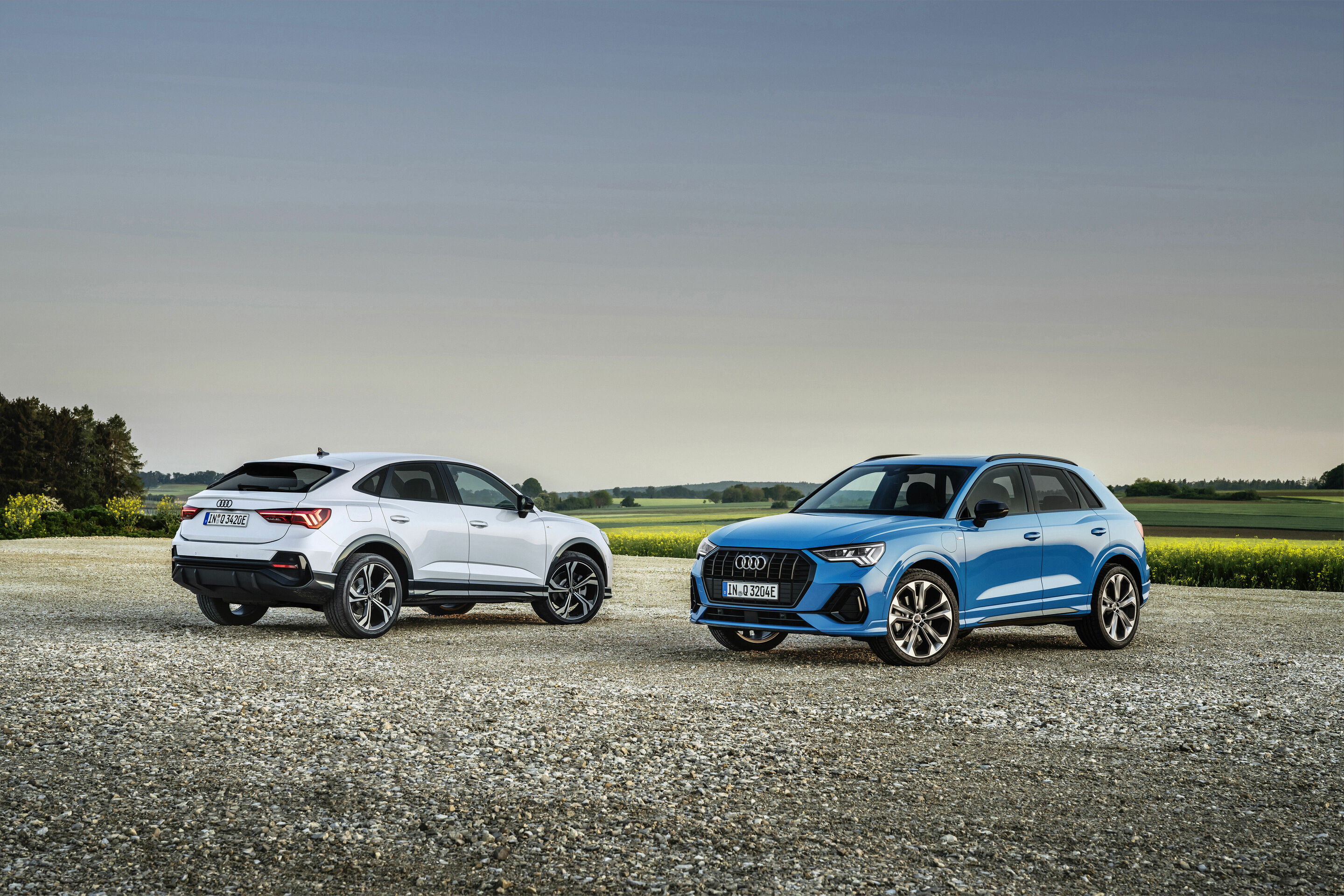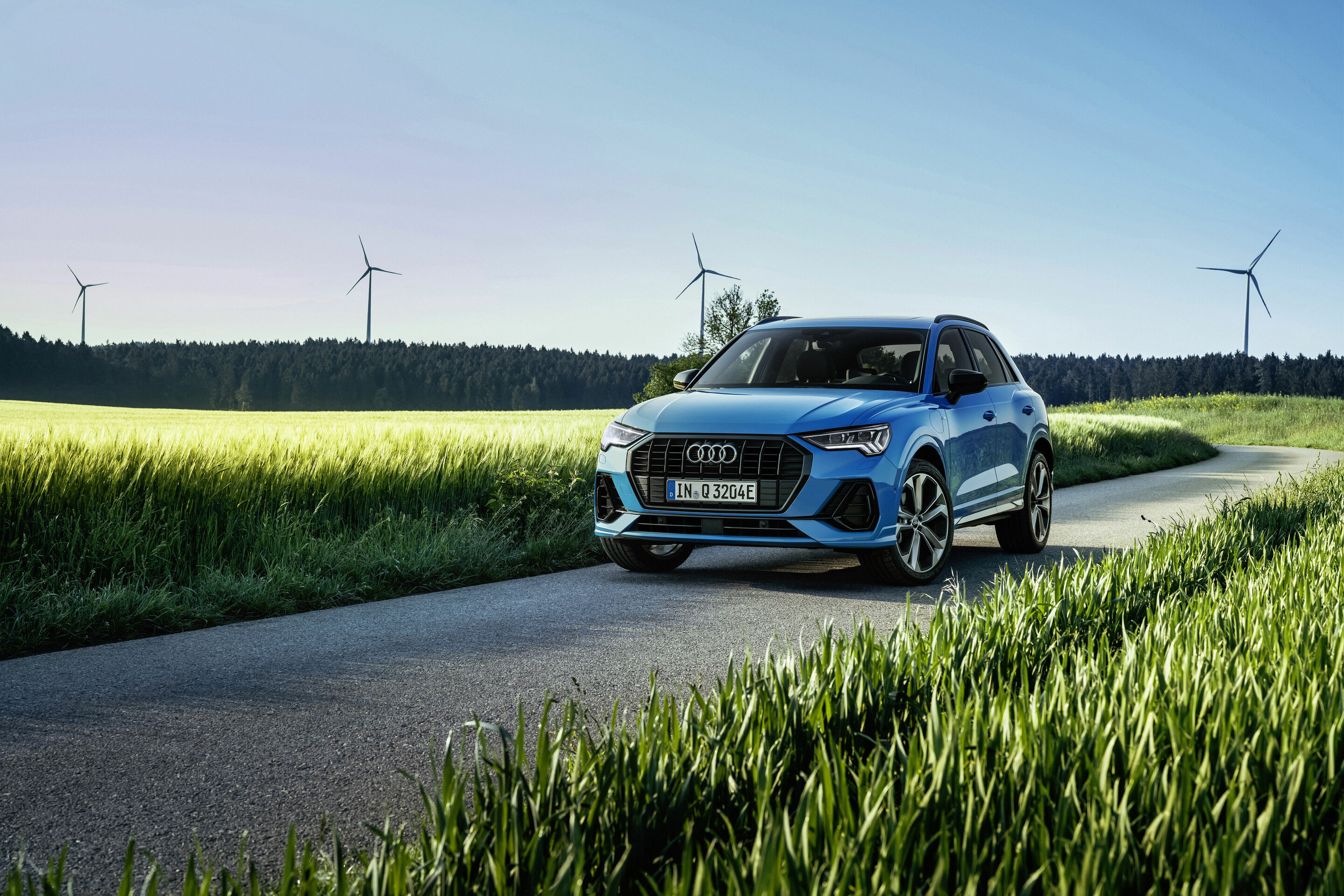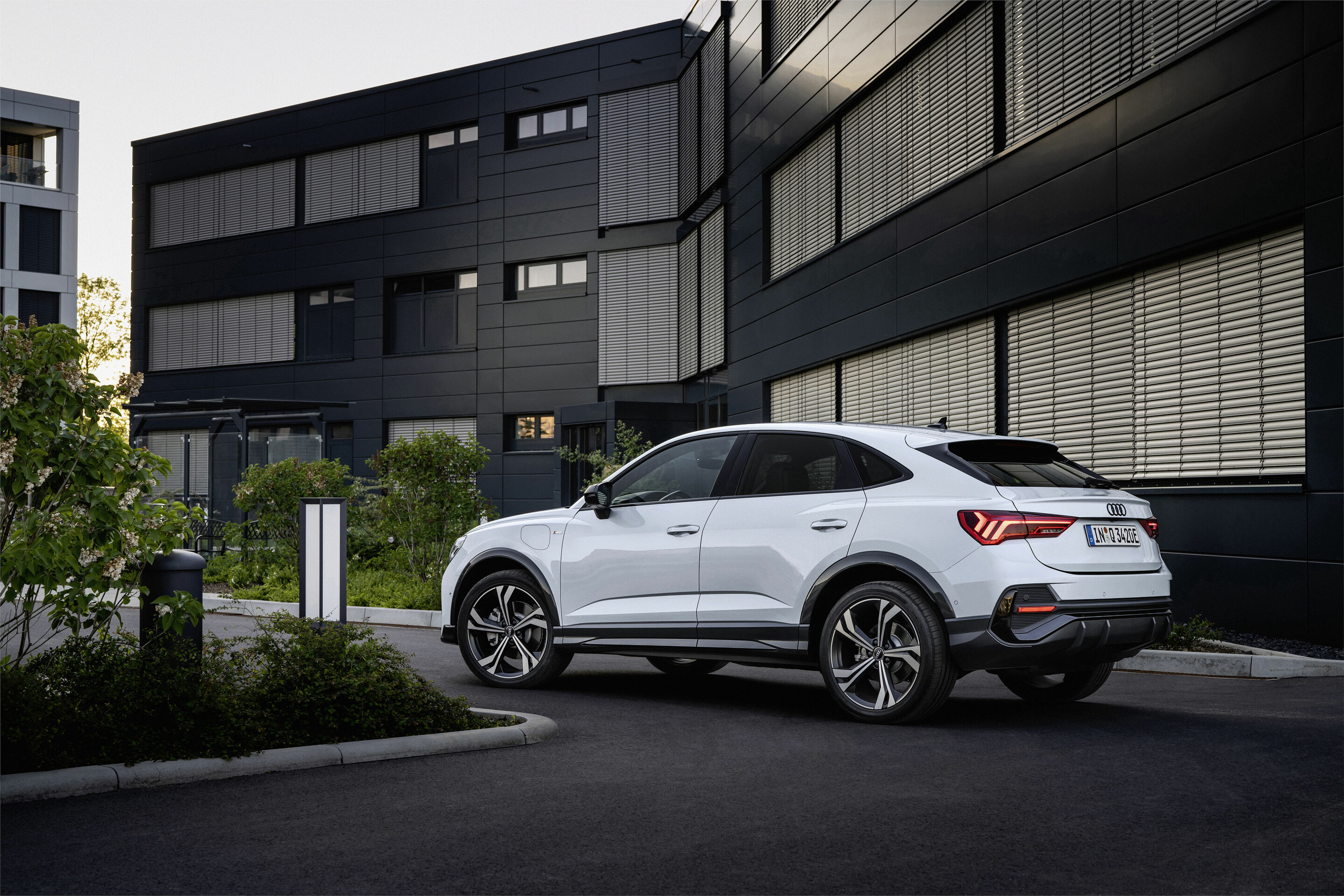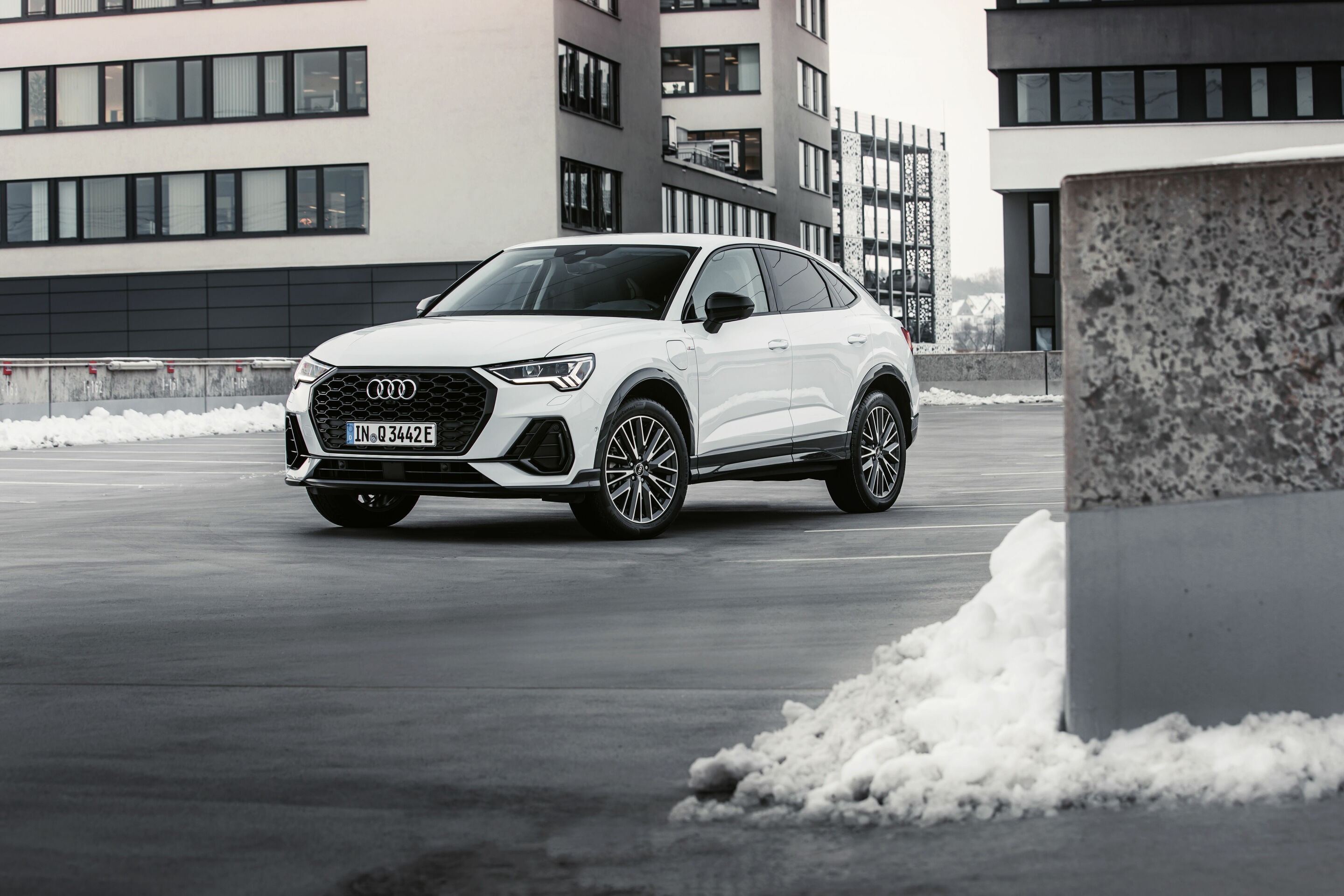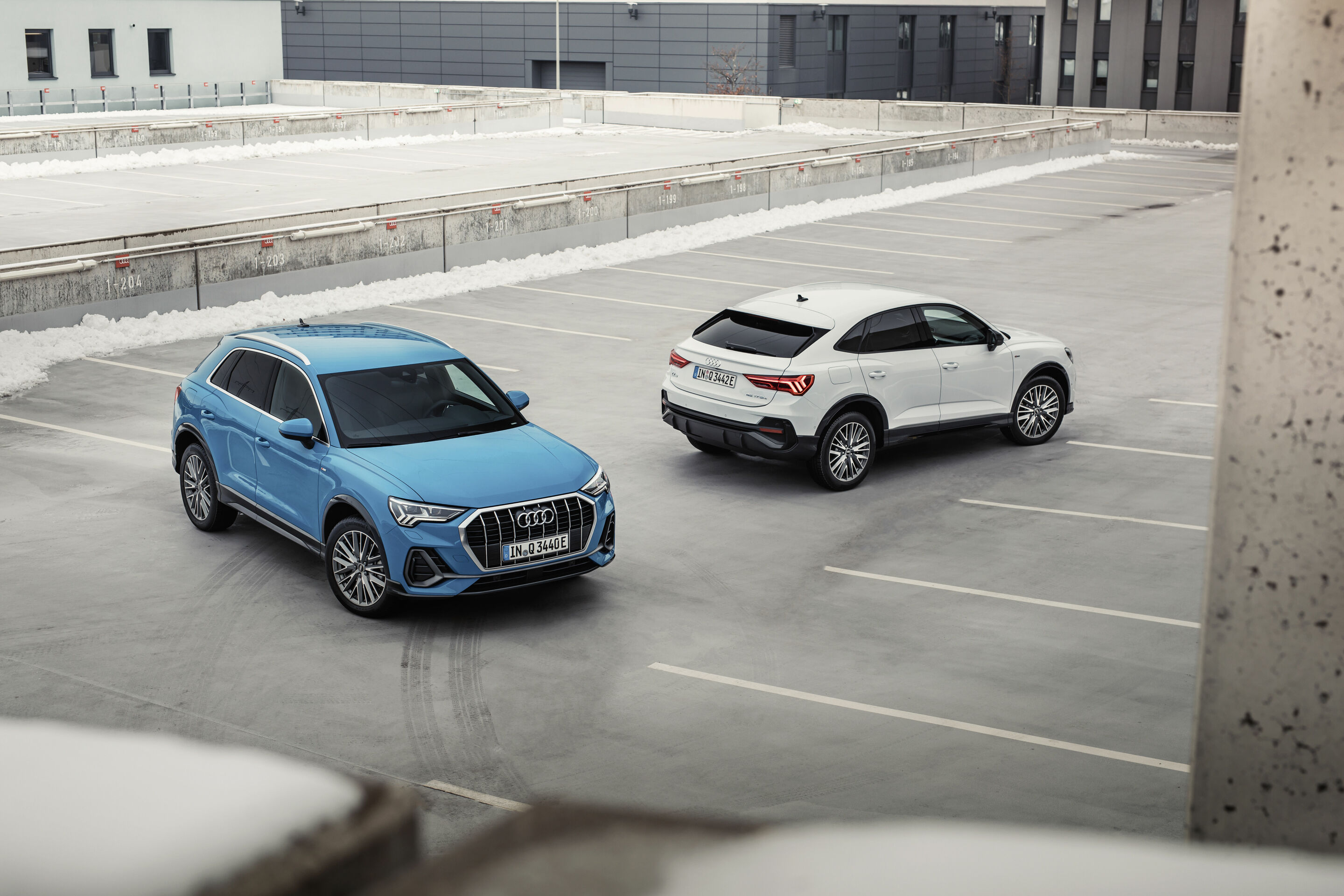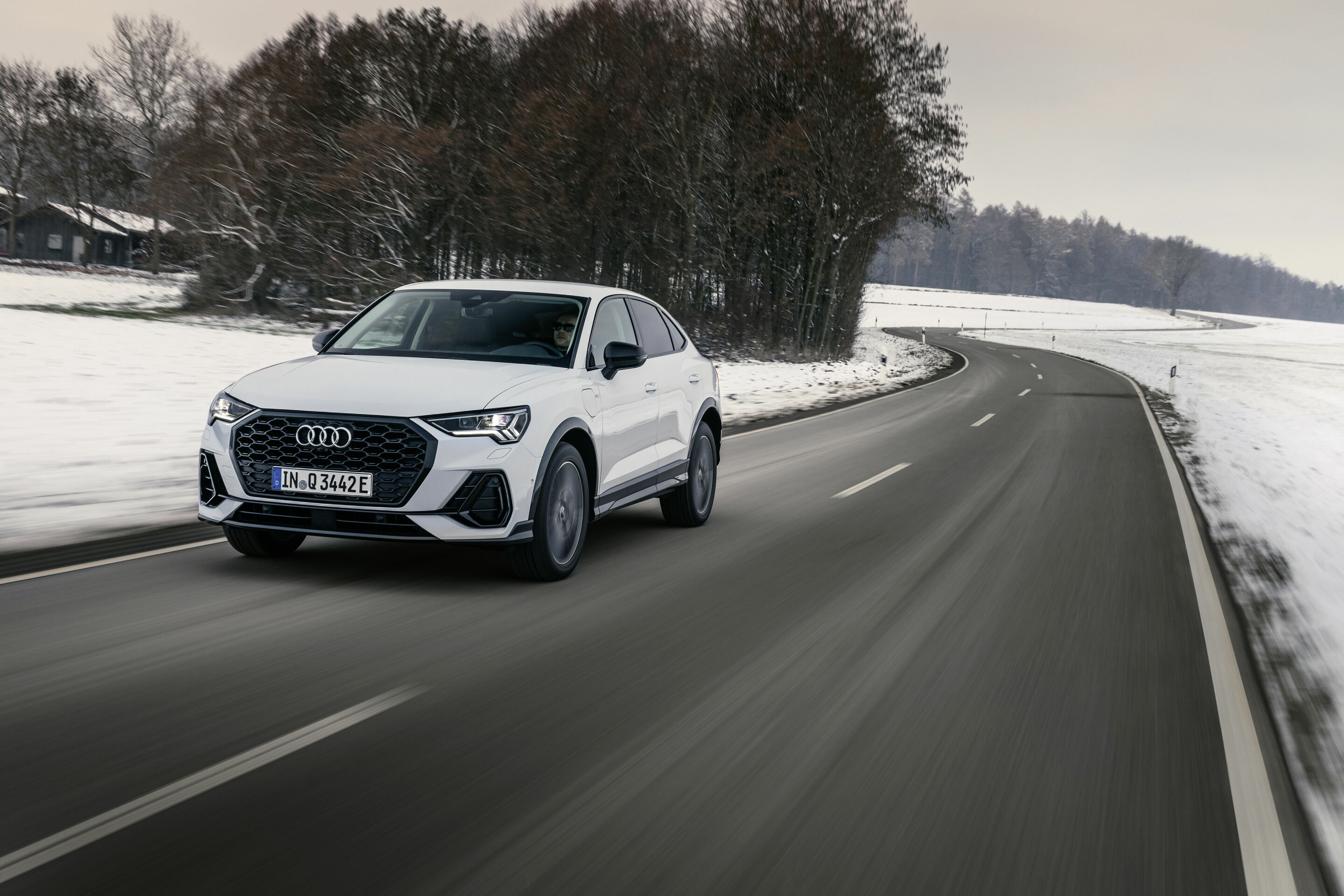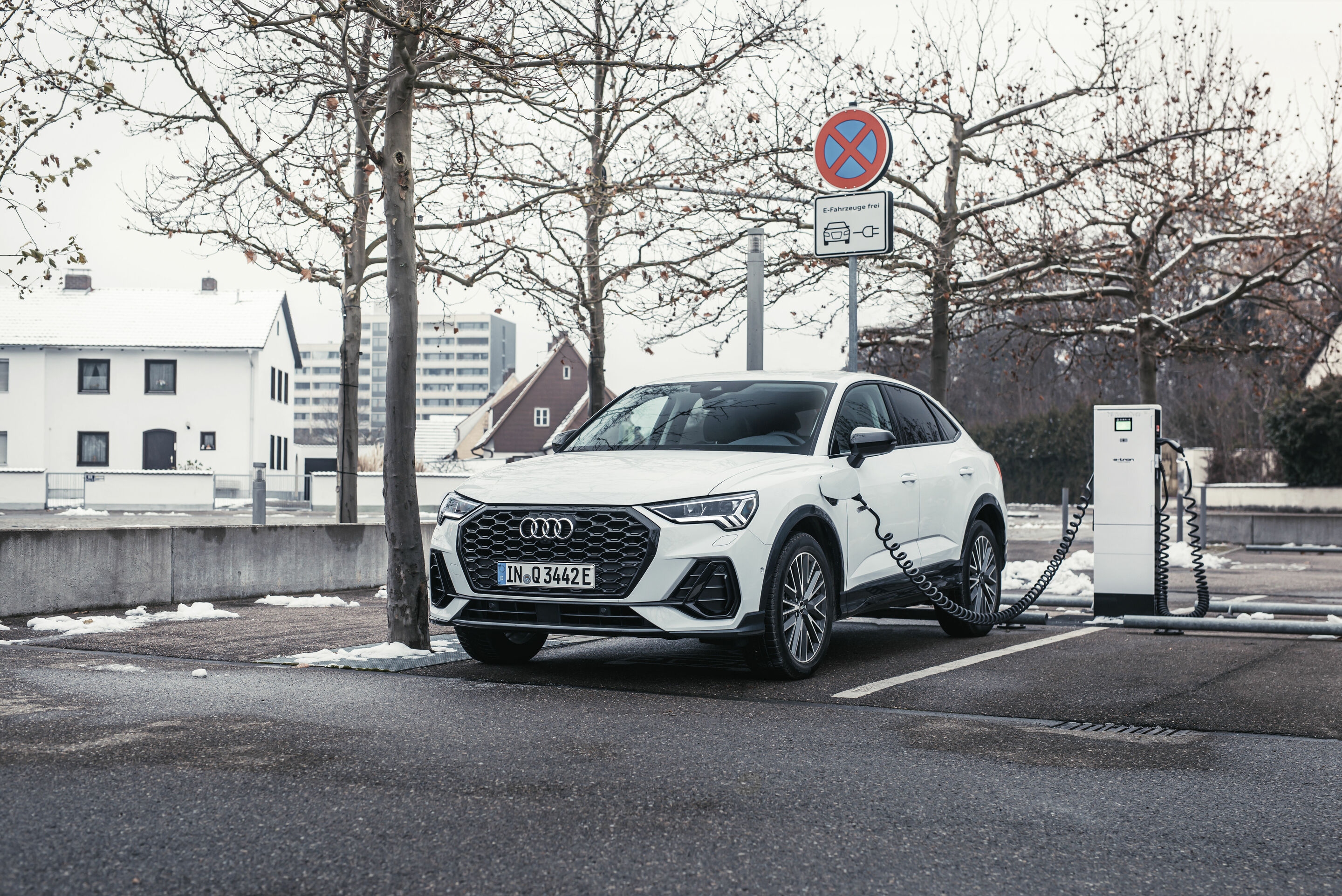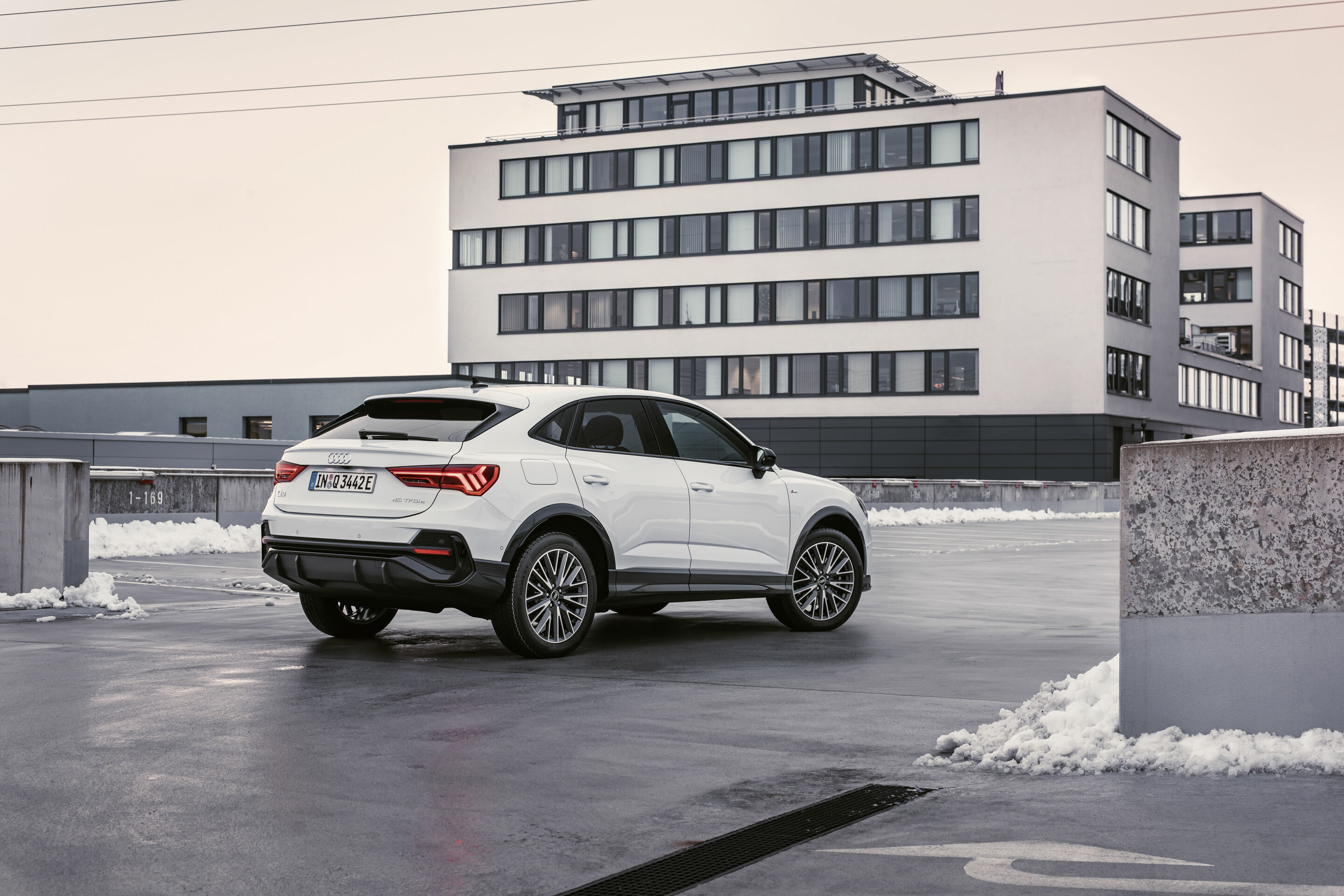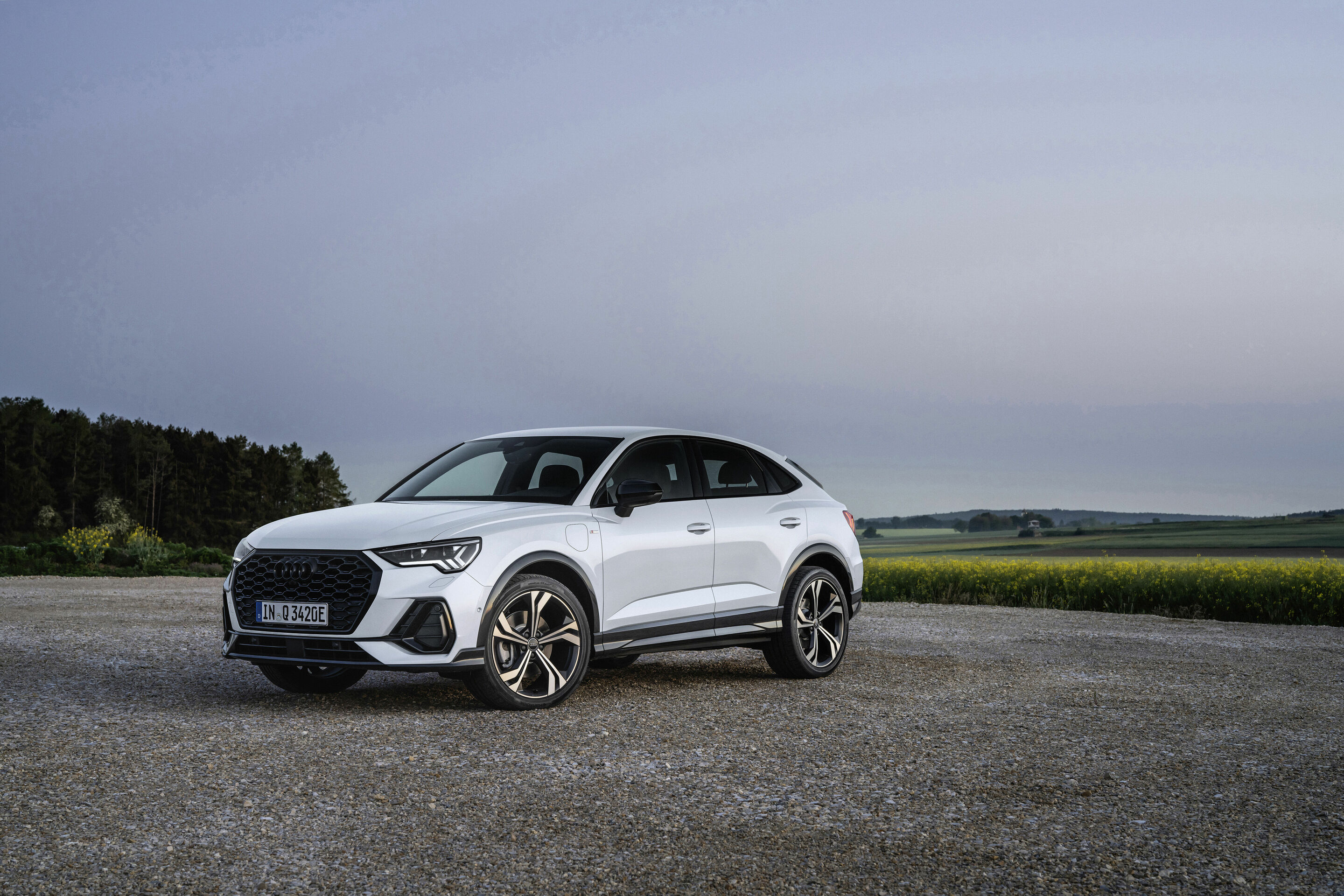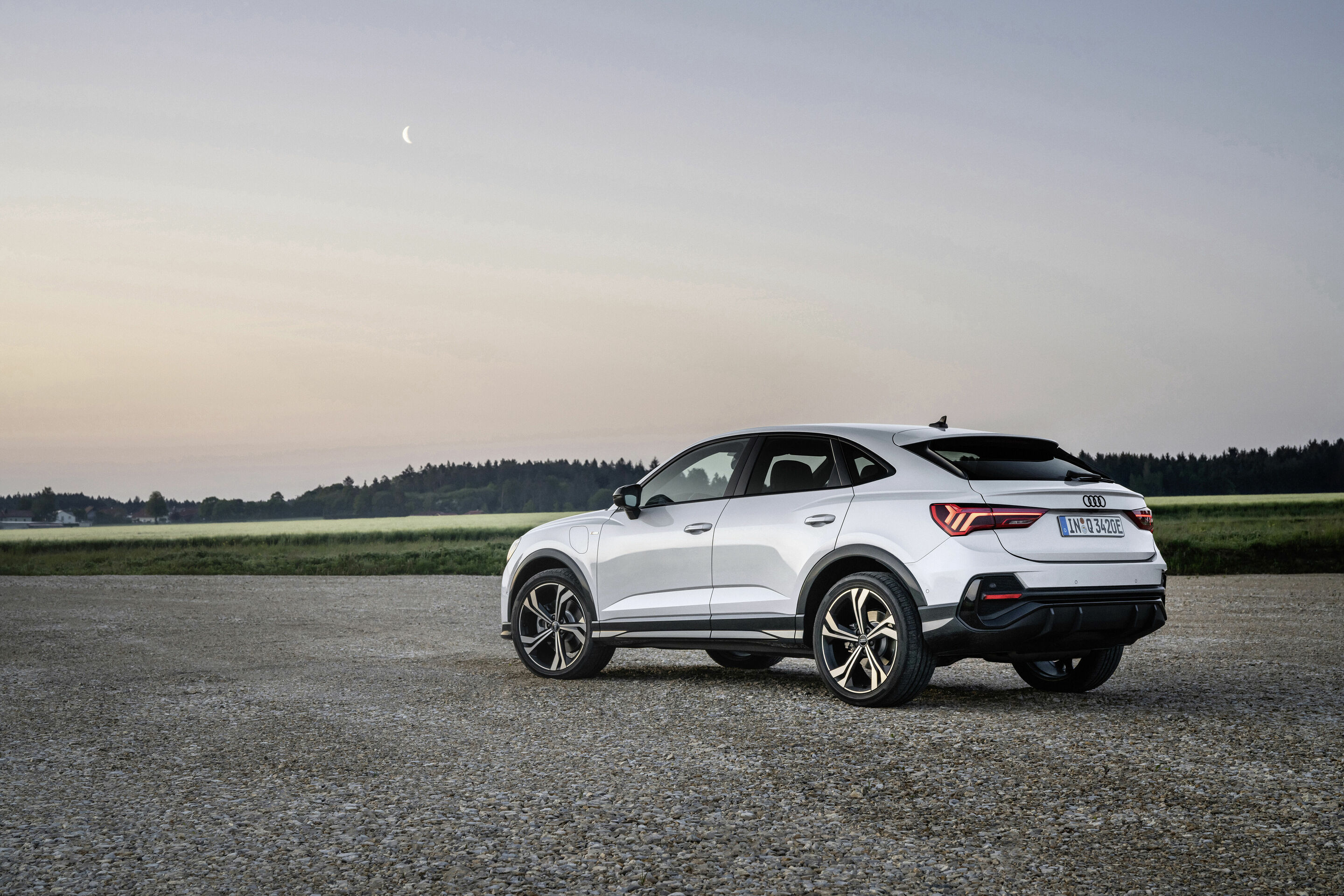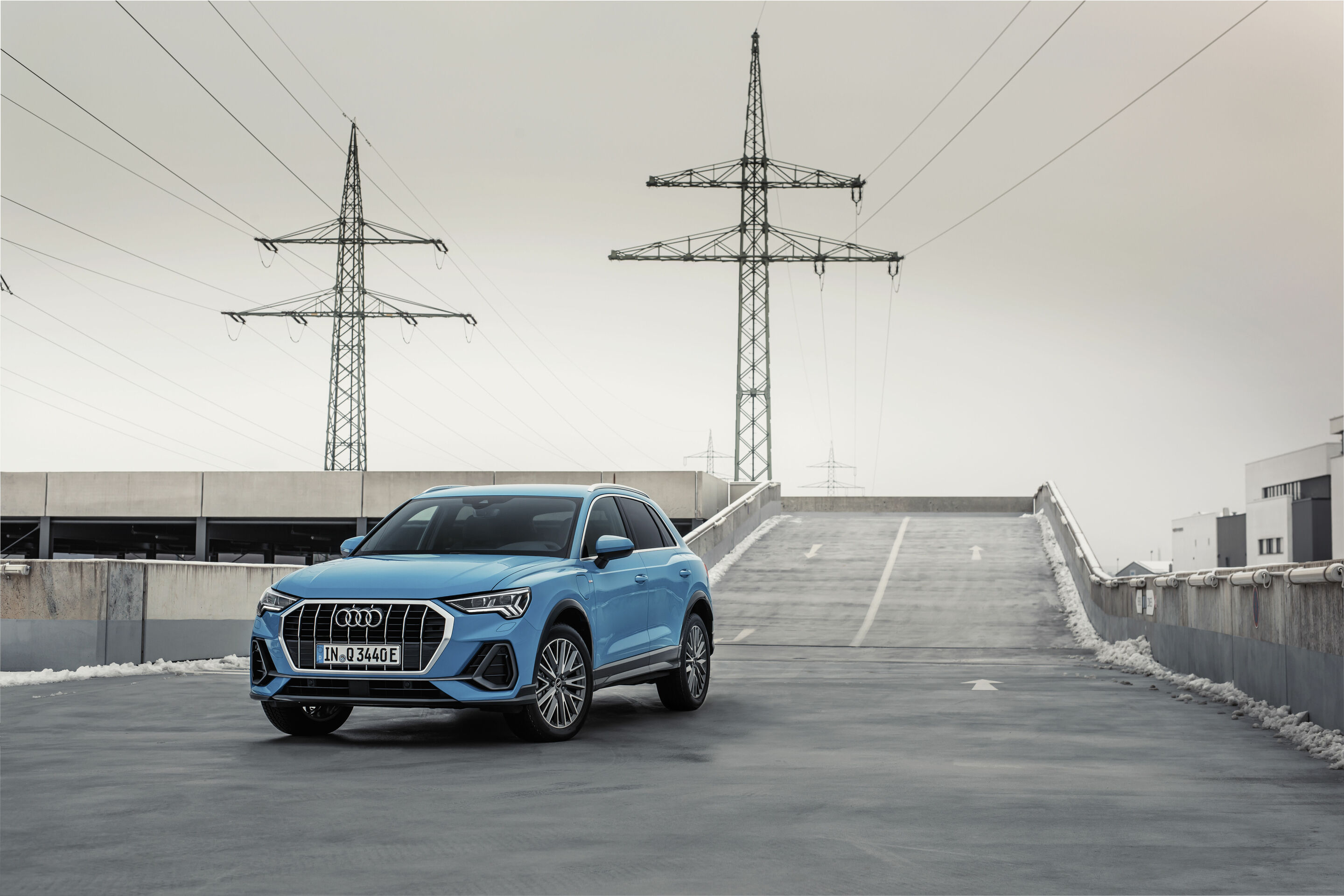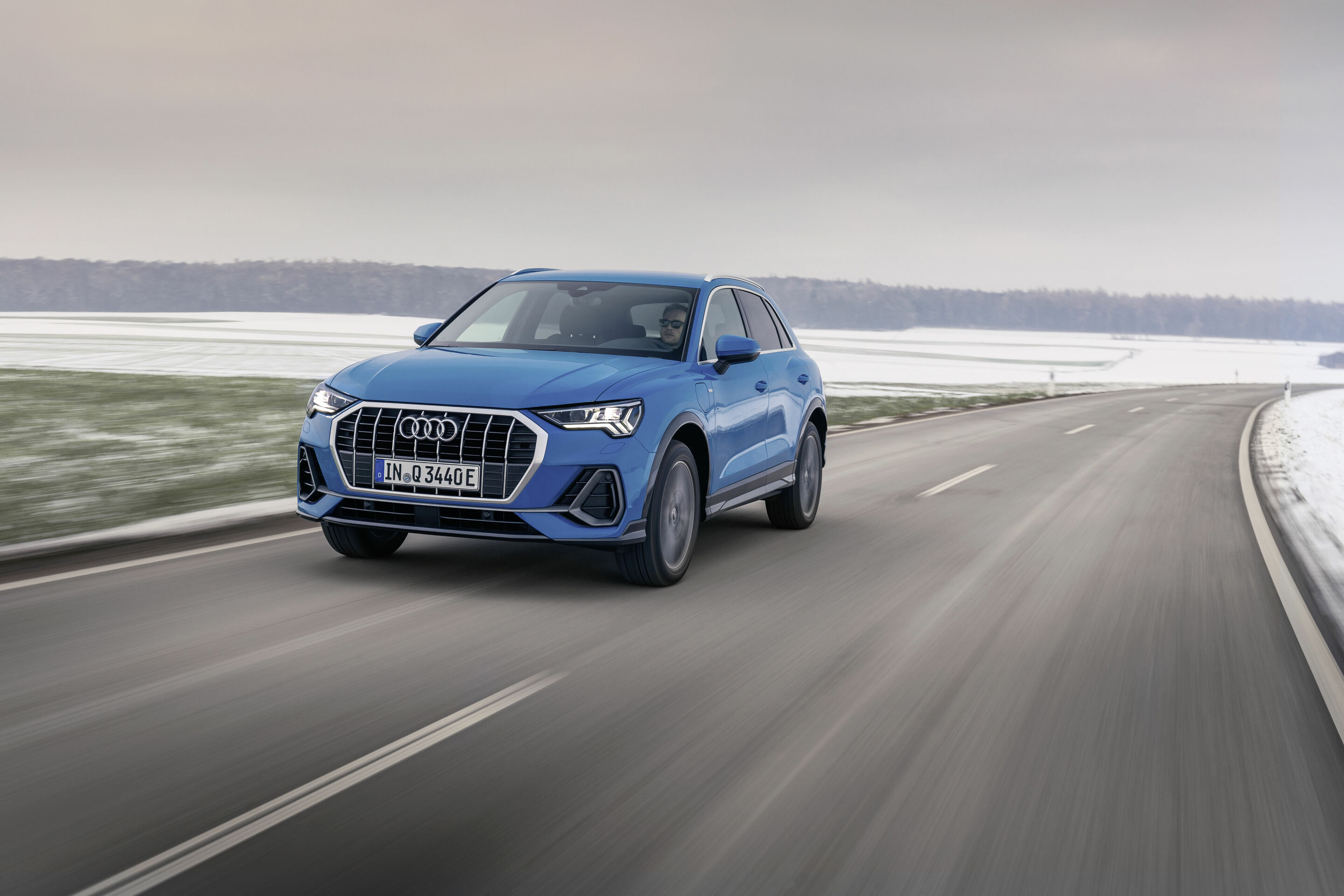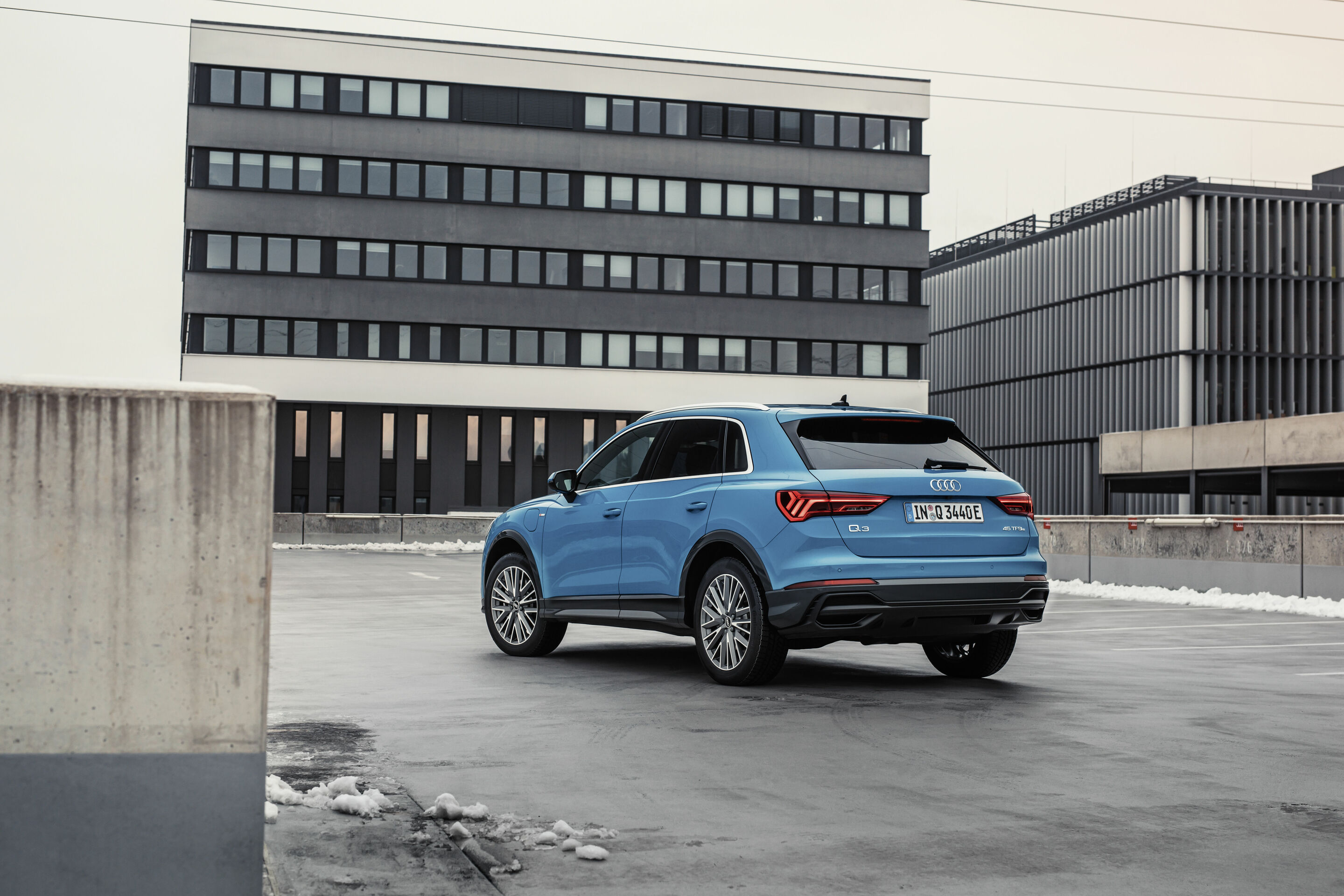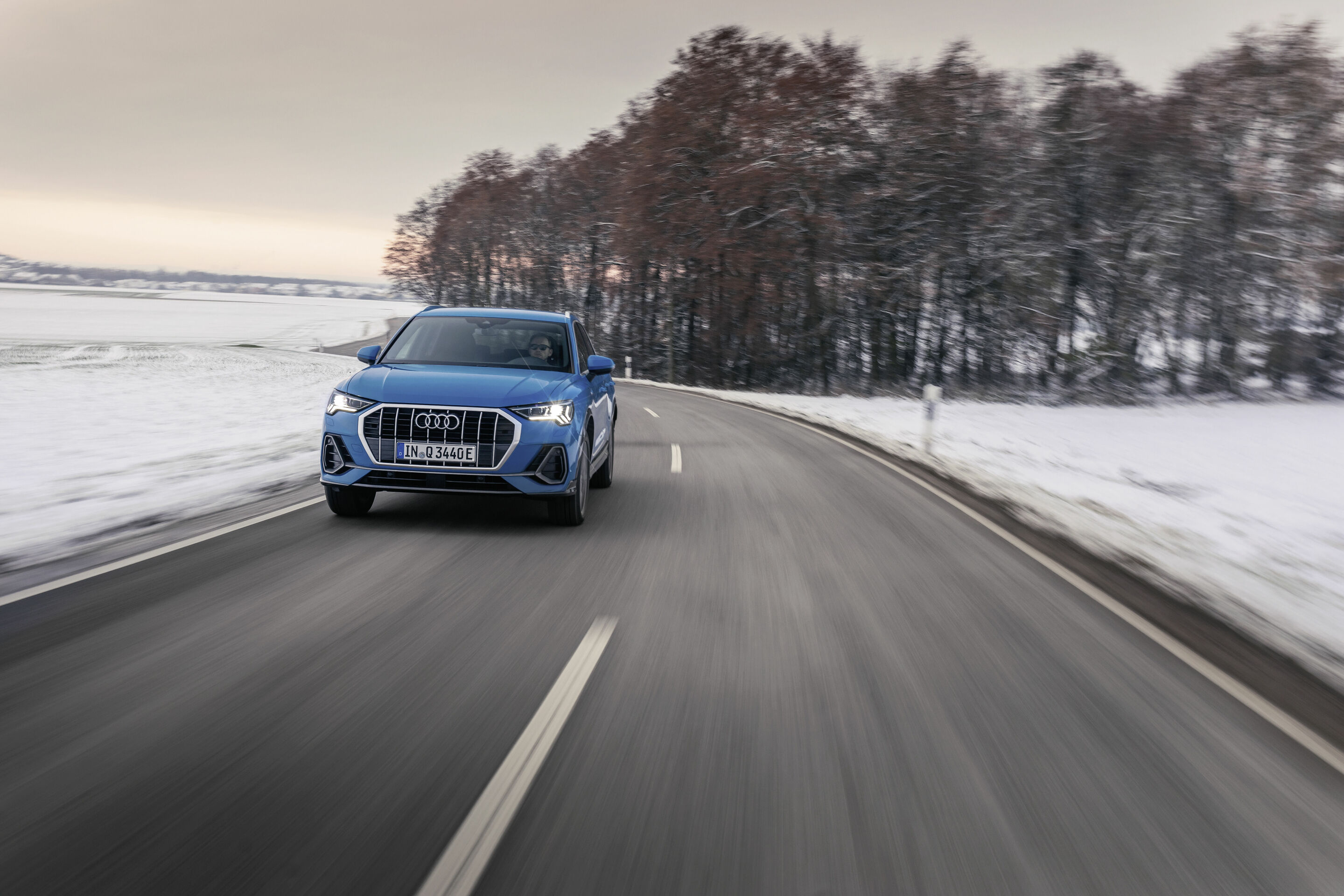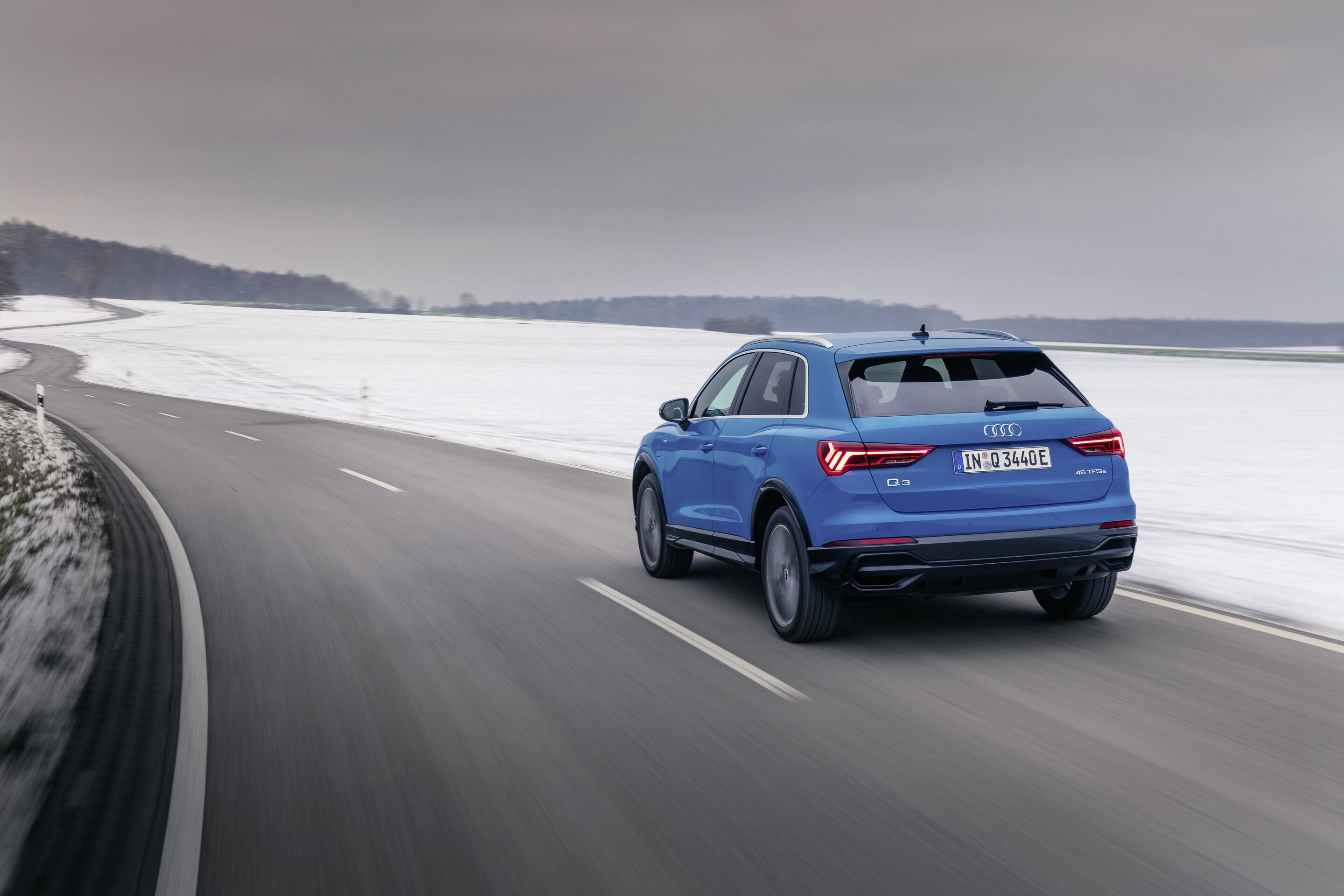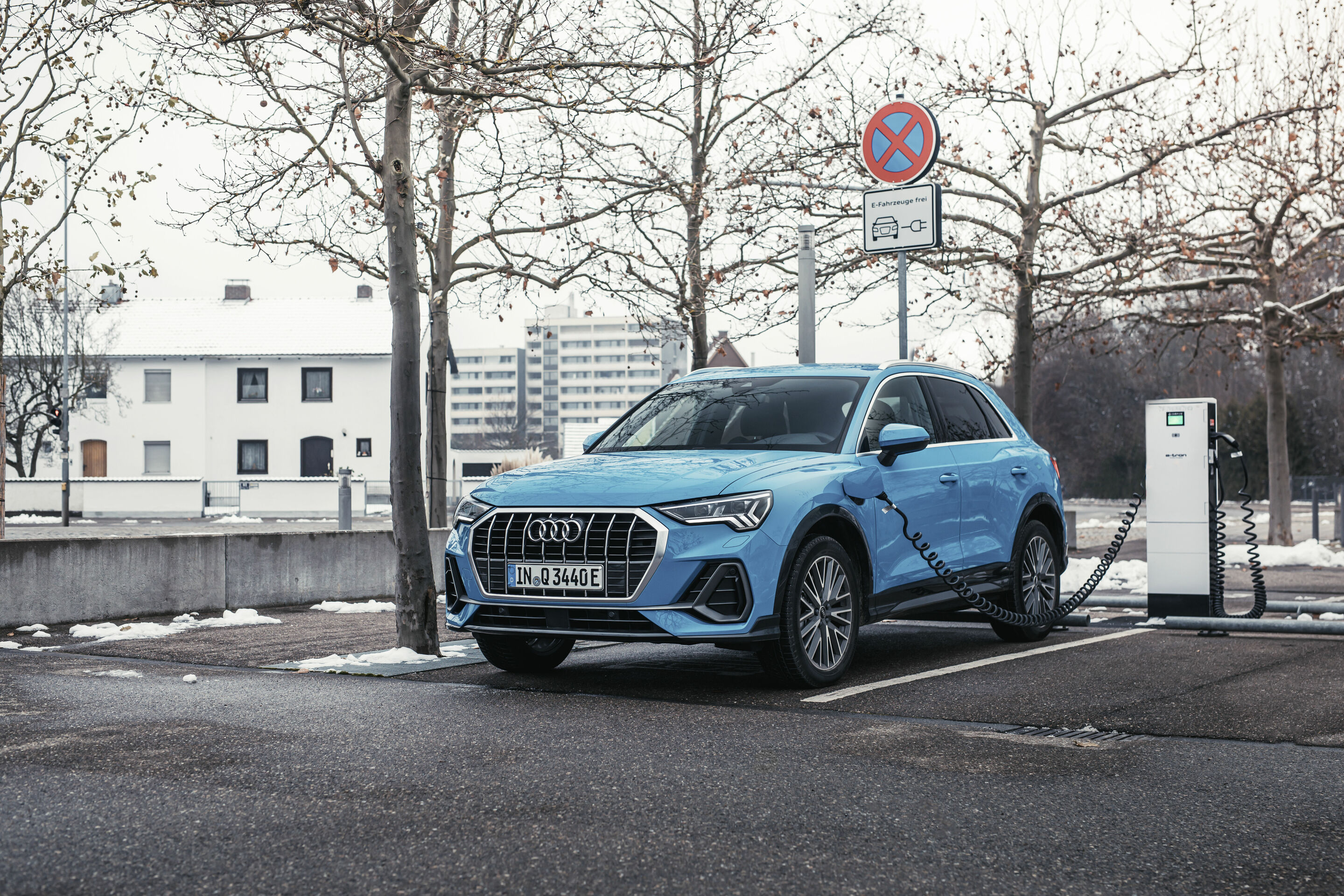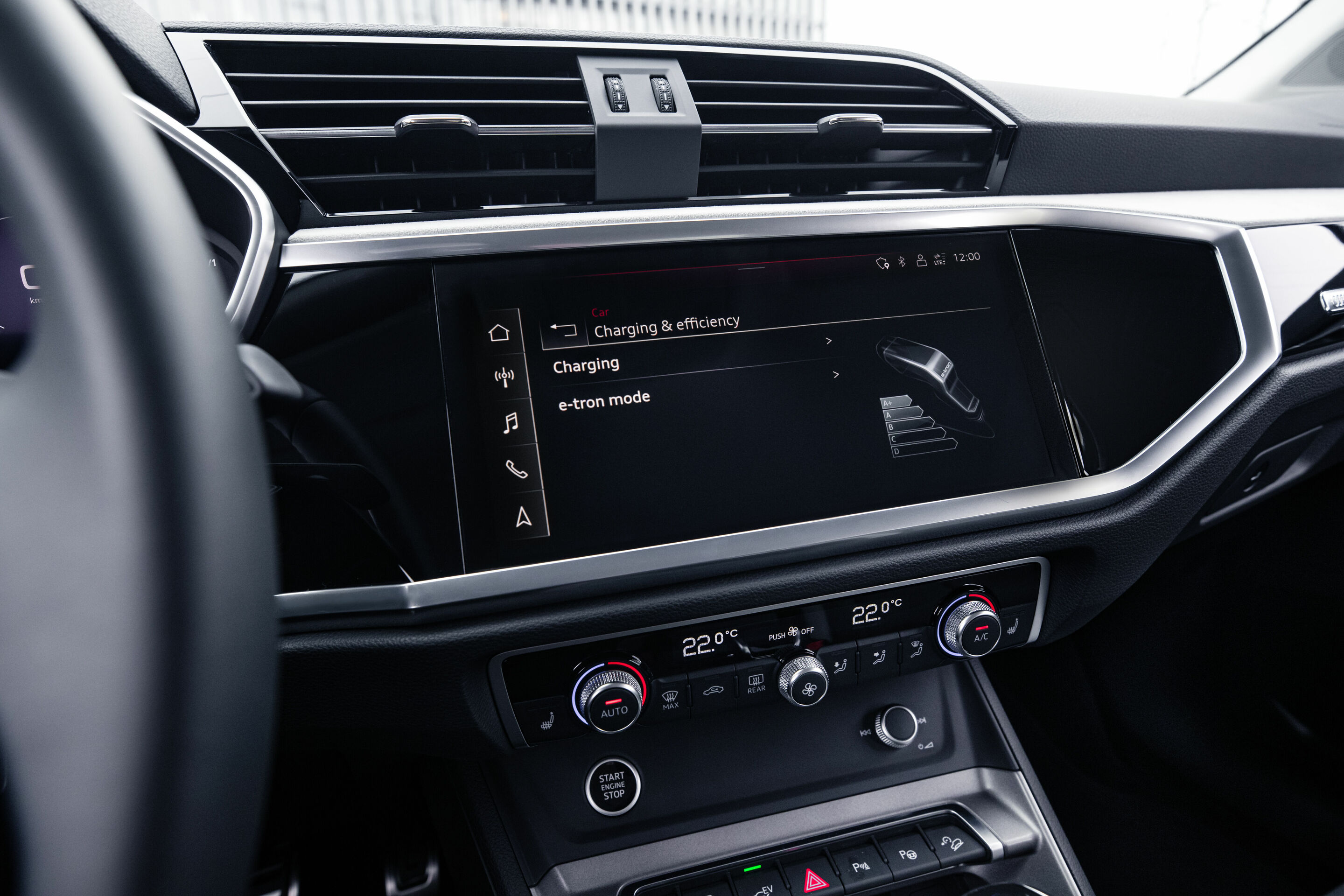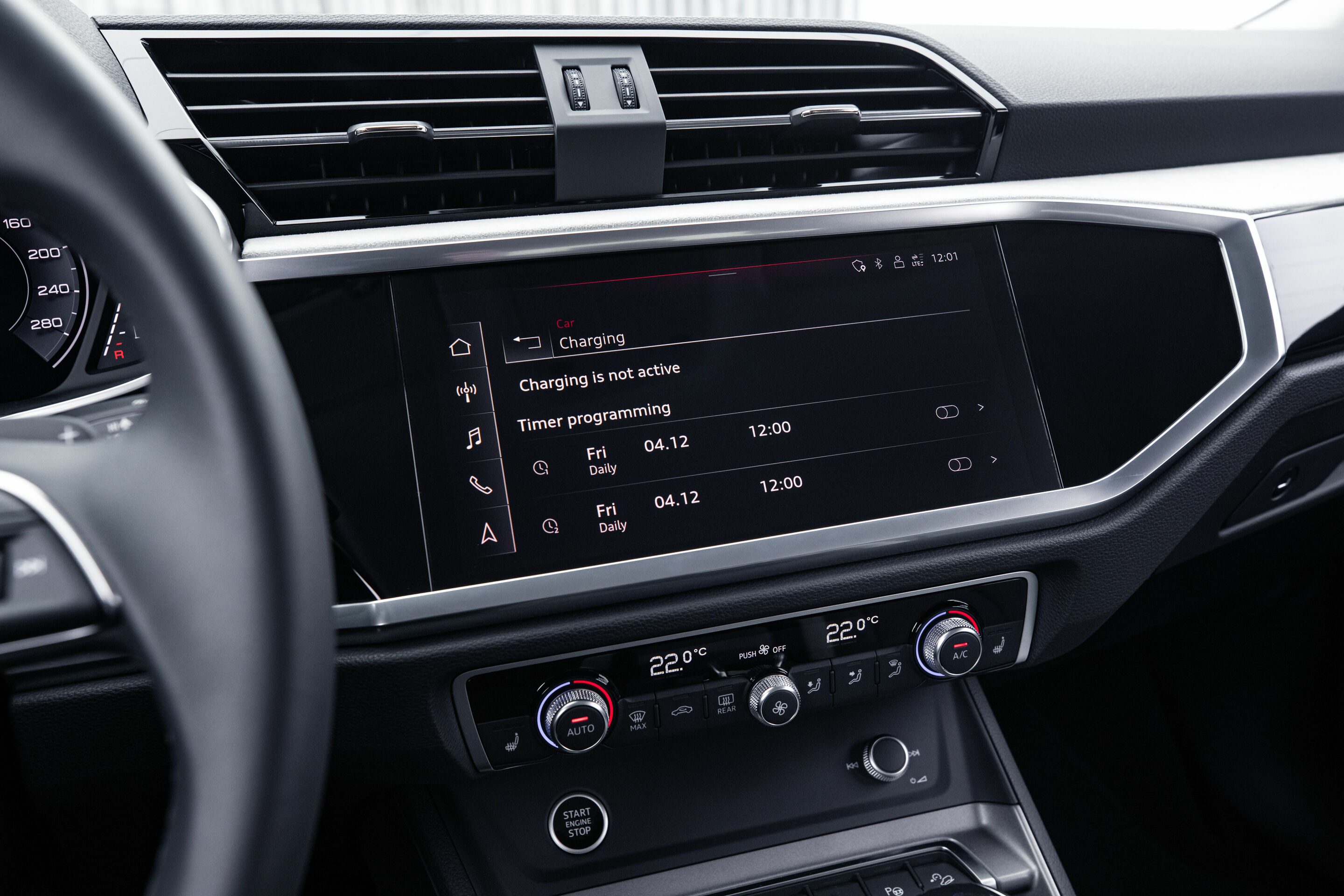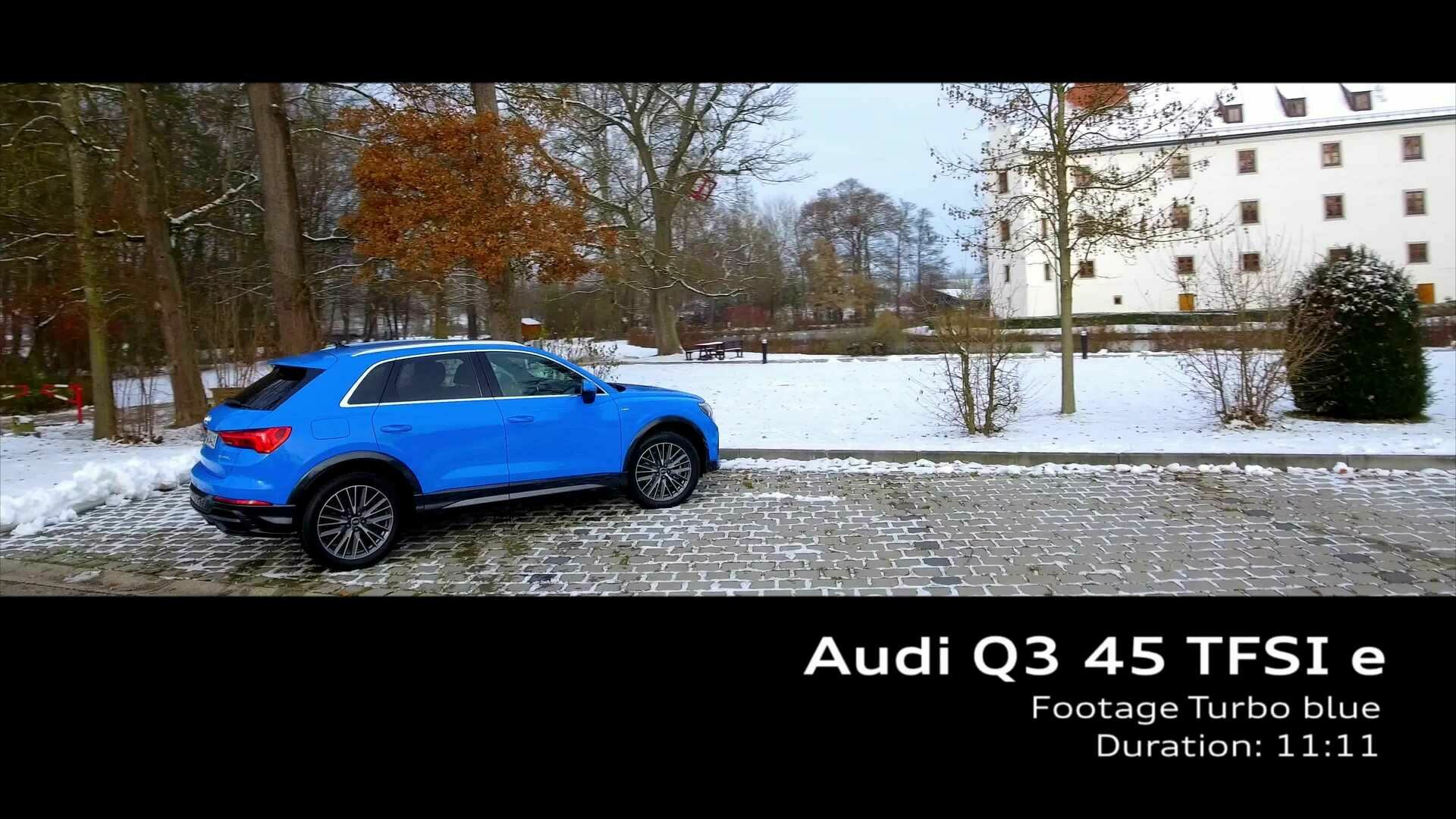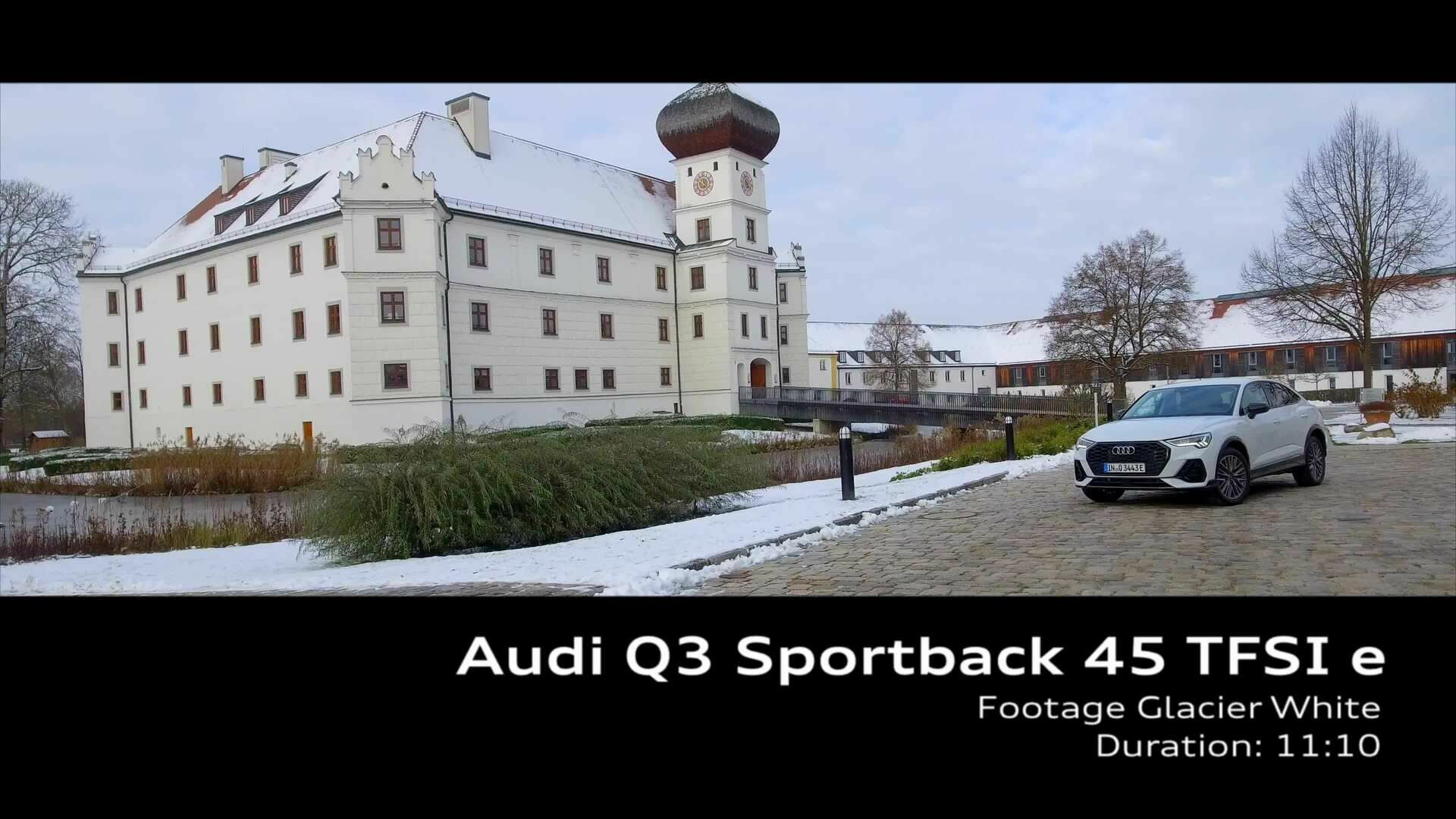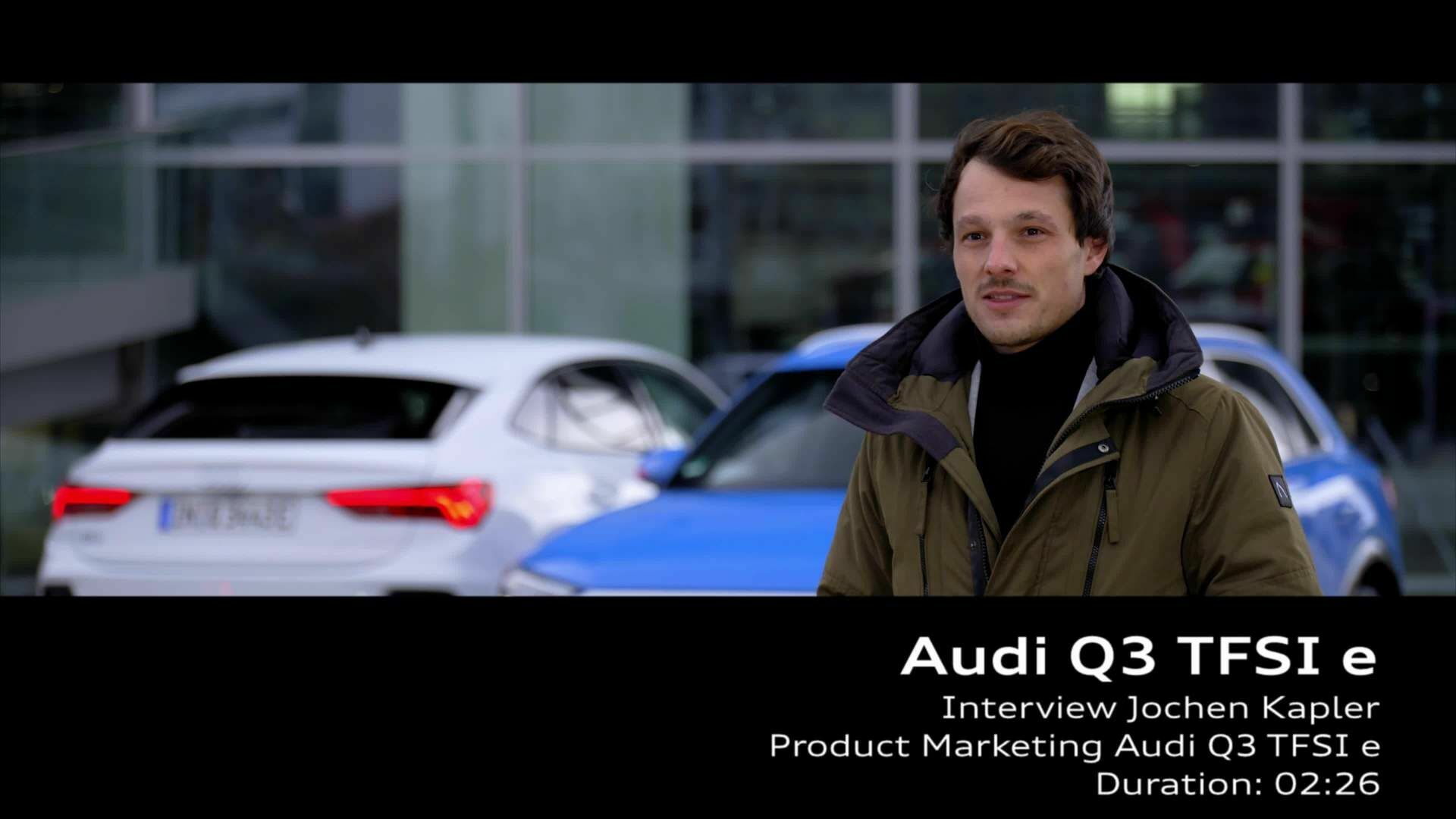Electrification in the compact SUV segment: the Audi Q3 45 TFSI e and the Q3 Sportback 45 TFSI e
The Q3 45 TFSI e and the Q3 Sportback 45 TFSI e (combined fuel consumption in l/100 km (US mpg): 1.7–1.4 (138.4–168.0); combined electric power consumption in kWh/100 km (62.1 mi): 16.0–14.4; combined CO2 emissions in g/km (g/mi): 39–32 (62.8–51.5)) mark the first step into the world of electrified Q models from Audi. Their technology package is very similar to the A3 45 TFSI e: The 1.4 TFSI cooperates with a permanently excited synchronous machine (PSM) that outputs 85 kW of power and 330 Nm (243.4 lb-ft) of torque. Together, the two motors generate 180 kW (245 PS) of system output and 400 Nm (295.02 lb-ft) of system torque. Both the Q3 45 TFSI e and the Sportback take 7.6 seconds to sprint from 0 to 100 km/h (62.1 mph), and both models reach a top speed of 210 km/h (130.5 mph). In the NEDC cycle, the Q3 45 TFSI e consumes 1.7 to 1.4 liters of fuel per 100 km (138.4 to 168.0 US mpg) (39 to 32 grams of CO2 (62.8 to 51.5 g/mi)). The Q3 Sportback 45 TFSI e records the same values of 1.7 to 1.4 liters of fuel per 100 km (138.4 to 168.0 US mpg) (38 to 33 grams of CO2 (61.2 to 53.1 g/mi)). Both compact SUVs can cover up to 61 km (37.9 mi) in the NEDC powered purely by electricity. In the WLTP, the distance is 51 km (31.7 mi) for the Q3 45 TFSI e and 50 km (31.07 mi) for the Q3 Sportback 45 TFSI e.
Like with the Audi A3 TFSI e, the 96 prismatic cells of the compact and light high-voltage battery store 13.0 kWh of energy. This great value is achieved thanks to a new generation of prismatic cells. The Audi Q3 45 TFSI e and the Q3 Sportback 45 TFSI e can be charged using alternating current (AC) with an output of 3.6 kW, allowing an empty battery to recharge in slightly more than three hours.
| Audi Q3 / Q3 Sportback | 45 TFSI e S tronic |
| Displacement in cc | 1,395 |
| Max. power output of TFSI in kW (PS) at rpm | 110 (150) at 5,000–6,000 |
| Max. torque of TFSI in Nm (lb-ft) at rpm | 250 (184.4) at 1,550–3,500 |
| Max. power output of electric motor in kW | 85 |
| Max. torque of electric motor in Nm (lb-ft) | 330 (243.4) |
| System power output in kW (PS) | 180 (245) |
| System torque in Nm (lb-ft) | 400 (295.0) |
| Top speed in km/h (mph) | 210 (130.5) |
| Electric top speed in km/h (mph) | 140 (87.0) |
| Acceleration 0–100 km/h (62.1 mph) in s | 7.3 |
| Drive | Front-wheel drive |
| Transmission | Six-speed S tronic |
| Max. battery energy content in kWh | 13.0 |
| Max. charging capacity in kW | 3.6 |
Equipment and prices
Audi equips the two compact plug-in hybrids with 17-inch alloy wheels as standard. Wheels up to 20 inches in diameter are available upon request. Due to the cover plate for the battery, the body is ten millimeters (0.4 in) higher than that of the base model to ensure the same comfortable suspension and damper behavior. Both PHEVs feature a spacious and variable interior. The luggage compartment provides a basic volume of 380 liters (13.4 cu ft), which increases to 1,375 liters (48.6 cu ft) in the Q3 45 TFSI e and 1,250 liters (44.1 cu ft) in the Q3 Sportback 45 TFSI e when the seats are folded down. An electric tailgate, which can also be opened and closed with a kicking motion, is also available as an option. Both body variants will be available for order in Germany from mid-January. The price for the Audi Q3 45 TFSI e starts at EUR 46,000, and the Q3 Sportback 45 TFSI e starts at EUR 47,400 (both prices include 19% VAT). In addition to the features already mentioned, their extensive standard equipment includes headlights with LED technology, two-zone automatic air conditioning, and auxiliary air conditioning.
